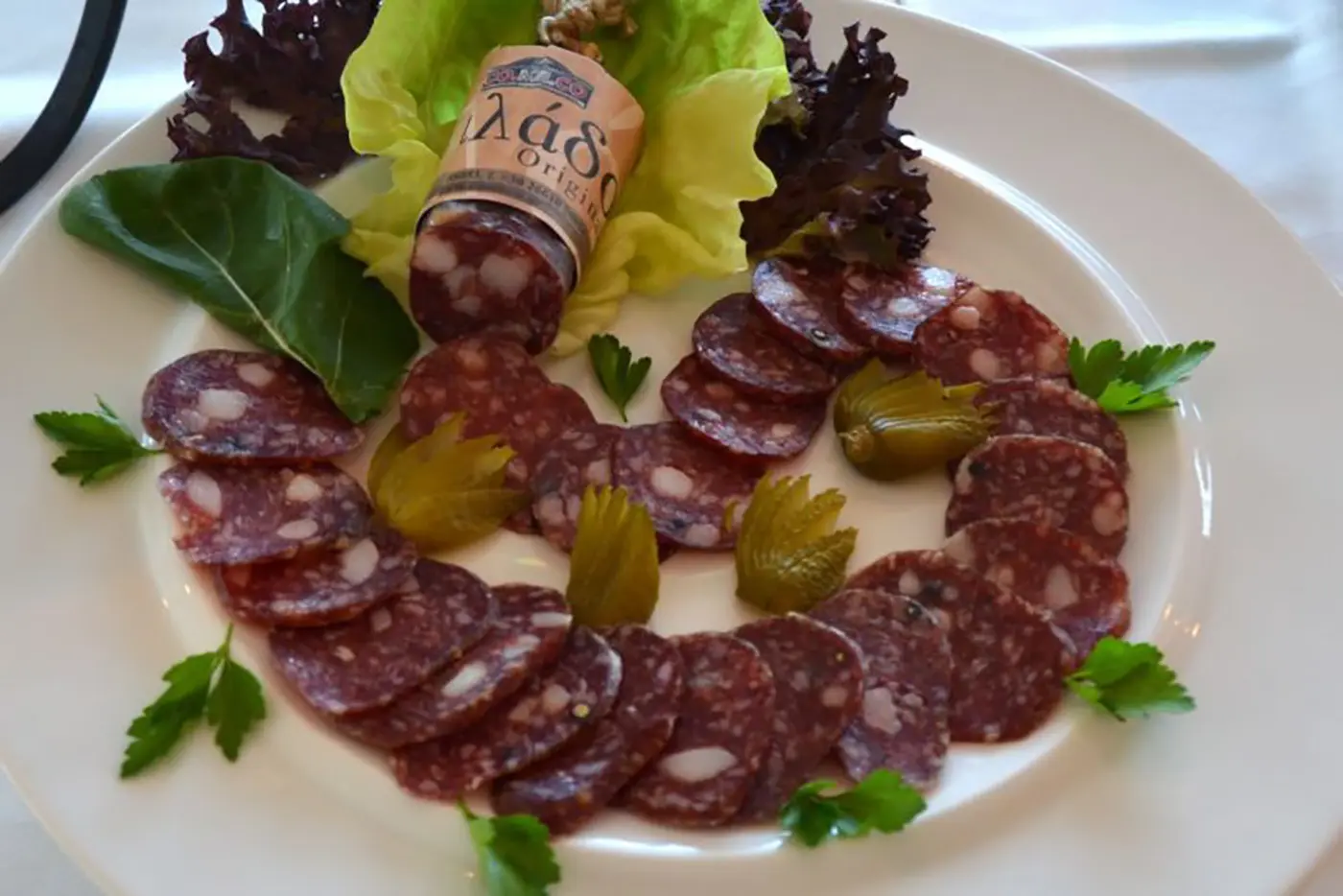Salado is the age-old spicy treasure of Corfiot cuisine, a cured air-dried salami that has become part of the island’s local identity and culinary heritage. The word “salado” comes from the Spanish salado, meaning “salty,” reflecting the traditional method of preserving meat with salt, long before modern refrigeration existed. In Corfu, this traditional recipe evolved into a smoked, handmade creation of high gastronomic value.
Making Salado requires dedication: pork and beef are kneaded with coarse salt, garlic, and a wealth of aromatic spices—mainly whole black peppercorns, so that the final product is spicy and fragrant without losing its natural texture. The mixture is stuffed into intestines, often from local animals, and hung in a cool, well-ventilated space. There, over the course of several weeks to two months, it matures naturally, drawing out light moisture while being gently smoked with fragrant branches from the Corfiot countryside.
The result is a salami with a deep brown-red color, juicy texture, and a strong aroma of smoke, black pepper, and garlic. Its flavor strikes a balance between salty intensity and consistent spicy elements. It pairs ideally with local drinks such as tsipouro, ouzo, red wines (such as the region’s Cabernet Sauvignon), and even beer.
It is a tradition for Salado to be present on festive tables, especially at Christmas. In Corfu, it hangs near fireplaces and in grocery shops, served in thin slices alongside bread, olives, and local wine, an image evoking a deep-rooted memory of place.
Modern production of Salado remains closely tied to tradition. Companies like CO.ME.CO. (founded in 2001 by the Lavranos family) follow traditional recipes, ensuring products meet ISO 22000 safety and quality certification. This results in an authentic experience, where the smoky flavor “turns back time,” transporting us to the old ways of preserving meat and to the human connections of family, friendship, and celebration.
Today, Salado has surpassed the narrow role of meze; in dishes like carbonara pasta with Salado, it adds depth and character. It is often featured in gastronomic festivals, local fairs, and contemporary kitchens. It keeps our connection with the past alive while offering a culinary identity that speaks to the future.






Comments are closed